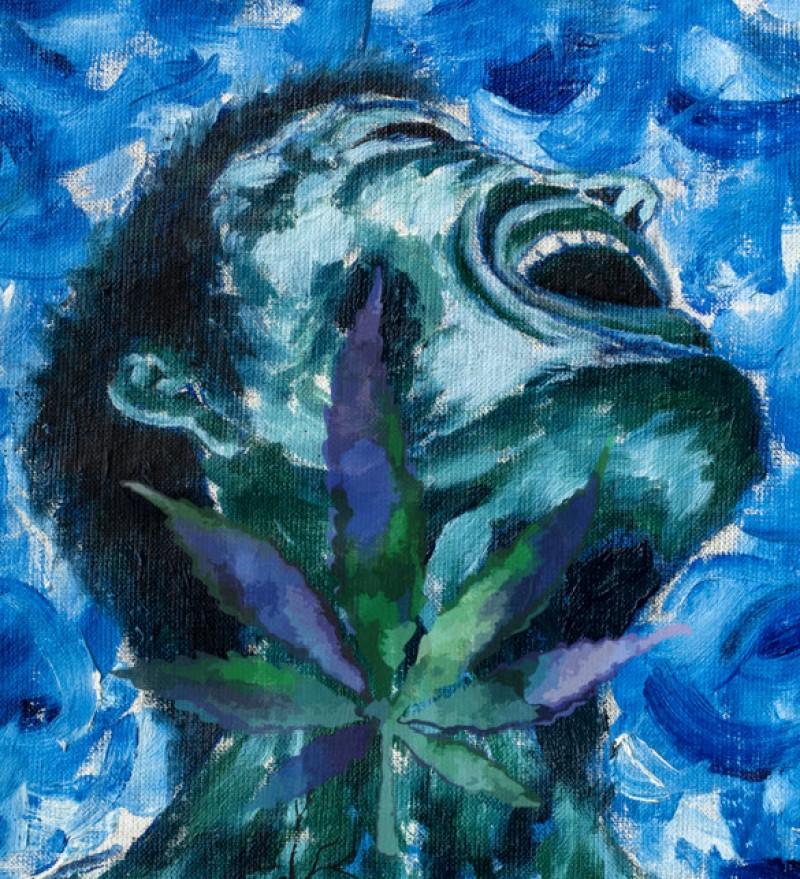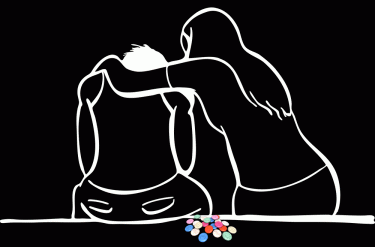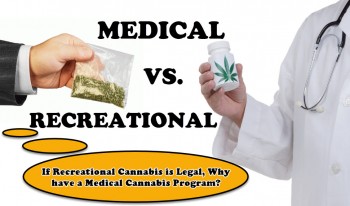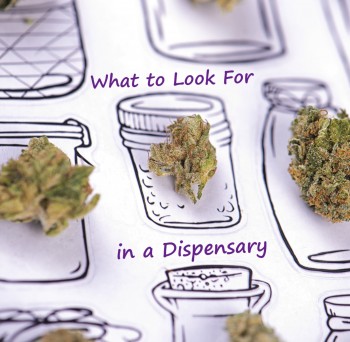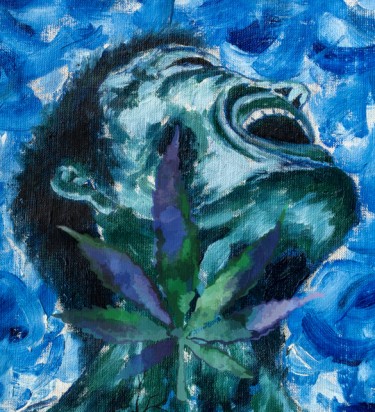
How to use cannabis to practice acceptance and transcend your suffering?
We can never avoid pain, but we do have a say in how much we suffer as a result. Of course, not all pain is equal and not all suffering is the same either.
“Pain is inevitable. Suffering is optional. Say you’re running and you think, ‘Man, this hurts, I can’t take it anymore. The ‘hurt’ part is an unavoidable reality, but whether or not you can stand anymore is up to the runner himself.”
This is a quote from Haruki Murakami in relation to his book, “What I talk about when I talk about running”. While this is directly relating to running, it’s also a great metaphor of life.
As we go through life, it is inevitable that we will experience pain or trauma. People will disappoint you, situations will get out of hand and you will be at the bad end of an experience a few times throughout your life.
Yet as Murakami suggests, “Suffering is optional” – the Buddha also eluded to the same truth, “Attachment is the root of suffering”.
In other words, the degree of identification you have with a particular situation or experience, will indicate the degree of suffering you will experience as a result. For example, let’s say you just bought the car of your dreams and someone comes along and shatters the windows, punctures the tires and takes a sledge-hammer to the door.
Odds are, you would “feel” the damage a lot more than if it was some random stranger’s vehicle. In the second scenario you might feel “sad” for the person depending on your degree of empathy, however, you wouldn’t “feel the pain” as much if it was your vehicle.
Maybe cars isn’t your thing. You can swap the object for anything that you care about and you’ll notice that instantly your attachment or identification with the object increases the perceived value to your own identity. In turn, when “something” bad happens to thus said object/person/experience – we suffer as a result because we cannot coincide the importance we place on the object/person/experience and what is actually happening to us in this moment.
Our attachment to the idea of the object/person/experience is what increases the degree of suffering we experience when it is altered in any way that conflicts with our internal expectations.
PTSD is also a form of suffering due to attachment, and this is where cannabis can help you detach and disidentify from whatever is ailing you, in return, reducing the degree of suffering the user experience. Today, we’re going to be talking about different ways we can achieve this and why cannabis can be a great tool for transcending your suffering.
Why do we identify so strongly with People/Objects/Experiences (POE)?
In order for us to operate within this reality, we are required to have a sense of “self”. This isn’t to be confused with the SELF, which is conscious awareness. The self – lowercase-s – is also known in mysticism as the “ego”.
The ego is essentially your identity or the collection of stories and experiences you hold that informs the SELF of the self. It’s the person you think you are right now.
And if we were to think about that person – you – how would you describe yourself? You would perhaps start with some physical characteristics, but then quickly pivot into “what you are doing, the music you like, job, school, relationship, politics, etc…”
All of these concepts are not the person, but rather the “interests of the person” which informs “who the person is”.
However, this still is superficial because we also know that we are our pain and victories, our wins and losses. We are the culmination of all experiences of our lives blended together in this thing we call a body to create the “illusion of the self” which bears your name.
It’s the avatar that consciousness uses to participate in the world we know it.
All of this is natural. However, what happens when trauma gets the self-fixated on a particular POE? You get PTSD, Anxiety disorders, eating disorders, panic attacks, etc. When the self is no longer able to construct new experiences without the influence of a past POE – we have a problem of “over attachment”.
How Cannabis Interrupts and Provides a Breather
In order for us to dislodge from the trance that keeps us ensnared and fixated on a particular POE, we are required to do something “extraordinary”. You could escape a trance state if you practice mindfulness.
However, most people do not practice mindfulness and/or are too caught up into the “gravitational pull” of the emotional field associated with the POE. You’re constantly pulled back into the black hole of despair only pilling on more darkness until you come to a breaking point.
Cannabis helps by injecting a bit of euphoria into the mix along with a cocktail of cannabinoids, terpenoids and flavonoids.
When all of this hits the brain, it sets of a sequence of events that alter the way that the brain normally functions. The current is somehow redirected in the brain, which then doesn’t activate the neuro pathways in the same intensity.
This minor shift in awareness is often all you need to be able to break the pain-trance. However, it’s important to reiterate that it’s a combination of mindfulness and the cannabis that allows this dislodging to occur.
If you are simply smoking to numb the pain, you won’t be able to escape the negative emotional feedback loop which is what is causing the suffering. Cannabis only provides you with the opportunity to dis-identify with the POE, but you still need to do the work. You can’t expect to simply smoke a joint and suddenly all of your problems are gone.
That is delusional thinking.
You have to participate in the healing process. There is no magic bullet. Healing from the traumatic experiences of the past takes courage and coming to terms with the reality of our situation. It may take time to dislodge yourself emotionally from the POE, but cannabis can make it a bit easier.
Acceptance is not Conformity
I feel it’s important to talk about the concept of Acceptance a bit more and explain why accepting something “as is” doesn’t mean you “conform” to it. It simply means that you acknowledge that a particular POE is as it is.
Whether it’s related to health, finances, relationships, etc – accepting the situation is simply saying, “This is how it is right now”.
That doesn’t mean, “because it is like this now I must do X, Y, or Z as a result…” Instead, it’s simply becoming mindful of the expression of the moment, how it is affecting you, how you would rather like to feel and behave, and only when you have a neutral emotional connection to the discomfort, will you be free to transcend your suffering.
This mean that you no longer have an “expectation of it”. It doesn’t mean that you are powerless to do anything about it. If you’re honest, there’s an infinite amount of things you could do in the face of any hardship.
You could walk out of your relationship, job, or engagement, you can end your agreements, you can simply ignore everything. But you are unwilling to do any of them because of the degree of attachment you have to the situation.
Once you can release your attachment to the situation can you begin to move freely, to look outside of the gravitational pull of the emotional field and find better ways to do things in the future. In a way, attachment is conforming to the situation as you get fixated on one problem with no solutions…you are stuck in a prison.
How to use Cannabis to untether yourself from your Suffering
Cannabis is not meant to be the main vehicle in detachment. However, it can be a great way for you to reduce the intensity of your suffering in order for you to deal with the root cause of it. For example, if you had a bad breakup with your partner, your heart would be broken, knots in the throat, tear-eyed.
This is because you have a broken image in your mind where what you thought you had, and wanted – is no longer a possibility the way it was supposed to happen. The “way it was supposed to happen” was the scenario you placed all the chips – and the Universe called – and it turned out that you were wrong.
Emotionally, you’d be broke, fixated on the pain seeing that the pain is the only remaining connection to the core desire of that what was lost. In this instance, smoking some weed and distracting you from the pain is a good thing.
Giving yourself a breather from the pain is a good way to gain some perspective on it. If the pain doesn’t go away and the cannabis makes you more mindful of it – simply close your eyes, breathe, and observe the feelings without judgement.
You’ll quickly notice that your relationship with the pain changes, and as a result, so does the amount of suffering
So the next time you feel the whole world on your shoulders, take a mindful toke and allow your brain to let go of the suffering. Either take a vacation or utilize it to take a deep introspection on what’s going on. The more mindfulness you practice, the quicker and easier it is to detach from the emotional field of the POE you are facing.
Once you have escaped the gravity, you’ll need to work actively on reframing the event. This is the second part of the equation. You – as a detached being of consciousness – are now no longer “consumed” by the past event, but have shifted into the perspective of the observer. From here, you can re-interpret the event in a more resourceful manner.
You accept that the POE happened, but ask that part of you that is fixated on the pain how it can express itself in a more resourceful fashion. Additionally, you can from your current perspective give new meaning to the trauma.
“Because of X I can do Y and while I didn’t like X, I can appreciate how it pushed me towards Y…”
Of course, this is only scratching the surface of the full scope of what we can do to detach from our pain.
If you’re interested in working through these past events, you can always hit me up and perhaps I can help you through the process.
Final Words
It’s not always easy to face our pain and trauma. We tend to run and hide from it because it alters our perception of who we are, it influences our behavior and gives us a reason why we “can’t”. There’s a sense of comfort in the misery that is known and owned by the self.
However, the SELF knows that this is not the way to exist and it is up us to engage with modes to help us transcend our pain. Whether this is via mindfulness, meditation, cannabis, breathwork, psychedelics, or therapy – these are all ways for us to face the self and heal from these attachments to painful POEs.
How has cannabis helped you detach from your suffering and reconcile your pain? Let us know in the comment section and let’s crowdsource solutions for us all to work through our traumatic events and transcend that which holds us back.

